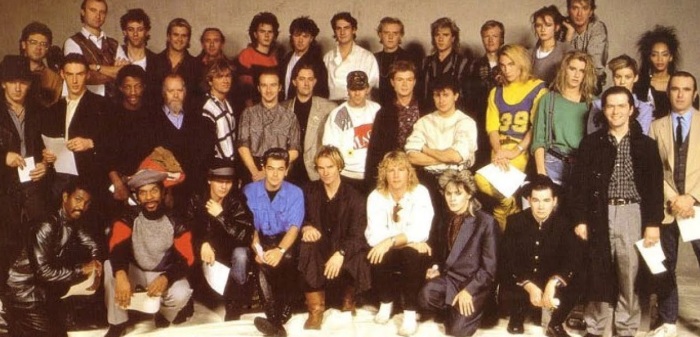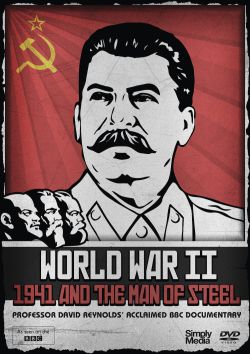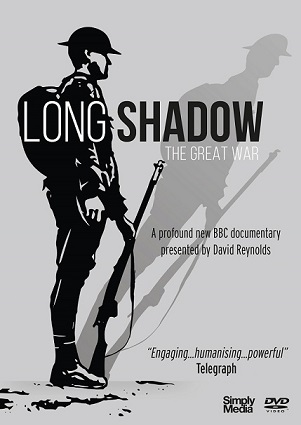
Guest contributor Zanyhorse takes a look at the radio series 25/30 Years of Rock. This first part examines 1955 to 1959
25 Years of Rock was originally broadcast on Radio 1 in 1980, and was a twenty-five part series looking at the music and news events of each year from 1955 to 1979. In 1985 the series was repeated as 30 Years of Rock which comprised the original twenty-five programmes plus an additional five programmes looking at the years from 1980 to 1984.
The series has recently been repeated on BBC Radio 6.
If you listen to the series now it helps if you bear in mind when it was first broadcast. In 1980 rock n roll was just over twenty-five years old, it was less than twenty years since the first Beatles’ record and ten years since the Beatles split, it was less than five years since the punk explosion. When 25 Years of Rock was first broadcast Bill Haley and John Lennon were still alive. The last programme in the series was more or less up to date with the current pop scene.
With each programme I have provided a playlist plus some additional comments.
1955
Introduction:
Rock Around the Clock – Billy Haley and the Comets
Anthony Eden on the Suez Crisis
Hound Dog – Elvis Presley
Interview with Elvis Presley
Hail Hail Rock n Roll – Chuck Berry
Bye Bye Love – the Everley Brothers
John F Kennedy on the Cuban Missile Crisis
The Times They Are a Changing – Bob Dylan
President Kennedy assassinated
She Loves You – The Beatles
Interview with the Beatles after receiving MBEs
I Can’t Get No Satisfaction – the Rolling Stones
My Generation – the Who
Vietnam War
San Francisco – Scott McKenzie
Country Joe McDonald at Woodstock
I Feel Like I’m Fixin’ to Die – Country Joe and the Fish
President Nixon announces troops to return from Vietnam
Space Oddity – David Bowie
Neil Armstrong lands on the Moon Edward Heath announces three day week
Bohemian Rhapsody – Queen
President Nixon Resigns Jimmy Carter runs for president
Anarchy in the UK – the Sex Pistols
Margaret Thatcher becomes Conservative Party Leader Interview with Johnny Rotten
Another Brick in the Wall – Pink Floyd
(When the first edition of 25 Years of Rock was repeated as 30 Years of Rock the introduction was extended to include: Ronald Reagan’s inauguration Fame – Irene Cara Interview with John Lennon. John Lennon assassinated. Just Like Starting Over – John Lennon Wedding of Prince Charles and Princess Diana Romeo and Juliet – Dire Straits The Falklands War Two Tribes – Franke Goes to Hollywood)
Main programme:
Alan Freed introduces…
Rock Around the Clock – Billy Haley and the Comets
Winston Churchill resigns as prime minister
Ain’t That a Shame – Fats Domino
Churchill announces Anthony Eden as successor. Conservatives win general election Leaders of USA. USSR, Britain and France meet at Geneva Summit
Sh-Boom – The Chords
Atom Bomb tests in Nevada Rolls Royce TMR, aka the Flying Bedstead, makes first vertical take-off
Bo Diddley – Bo Diddley
ITV launched (including Take Your Pick) Donald Campbell breaks waterspeed record in Bluebird
Maybellene – Chuck Berry
James Dean killed in road accident
Earth Angel – The Penguins
Royal Command Performance
On the Waterfront wins seven Oscars
Only You – The Platters
Billy Graham speaks in New York French evacuation of Vietnam
Hernando’s Hideaway – The Johnston Brothers
Start of Cyprus Crisis Juan Person ousted in military coup
Roll With Me Henry – Etta James
Prince Charles and Princess Anne make their first flight. Princess Margaret decides not to marry Captain Peter Townsend
See You Later Alligator – Billy Haley and the Comets
I Got a Woman – Ray Charles
Heathcote Elementary School wins architectural award
President Eisenhower suffers heart attack, but soon recovers and returns to work. Harry S Truman among attendees at Democratic Party dinner.
Adlai Stevenson announces intention to run for president.
Sixteen Tons – Tennessee Ernie Ford
British migration to Australia is highest for three years Borough of Lambeth organises inter-racial dance
Tutti Frutti – Little Richard
Harold Philby denies connection with Burgess and Maclean spy ring
The Great Pretender – The Platters
Jonas Salk develops polio vaccine. Rocky Marciano defends world heavyweight title
Elvis Presley introduces…
That’s Alright – Elvis Presley
USA and USSR announce plans to launch first space satellites by 1957
Mystery Train – Elvis Presley
Each programme plays out with Oh Well by Fleetwood Mac.
The first programme in the series, and one of the best.
Rock n roll started before 1955 and Rock Around the Clock wasn’t the first rock n roll record, but it was the first rock n roll record to be a major hit, so it was chosen as the starting point. Some music in this programme is the type of music that was the forerunner of rock n roll. But we also have the real thing from Chuck Berry, Bo Diddley, Little Richard, and somebody called Elvis Presley.
The news events put the music into some sort of context. When Bill Haley recorded Rock Around the Clock Winston Churchill was still prime minister. When this programme was first broadcast in 1980 the Burgess/Mclean/Philby story would have rung a bell with some listeners who didn’t remember the events of 1955, because a year earlier Anthony Blunt was exposed as the fourth man in the spy ring. And this isn’t the last we’ll be hearing about Vietnam.
1956
Roll Over Beethoven – Chuck Berry
Bikini Atoll H-Bomb test, Anthony Eden announces plan for Britain’s H-bomb, Editor of Steel predicts nuclear planes and homes heated by nuclear fuel
Let the Good Times Roll – Shirley and Lee
Smog causes disruption to train service and cancelled flights High-rise flats opened in Toryglen, Glasgow
Blueberry Hill – Fats Domino
Rocky Marciano retires British Sports awards. Freddie Laker takes ten wickets in one innings. Floyd Paterson wins heavyweight boxing title
Blue Suede Shoes – Carl Perkins
Prince Rainier of Monaco marries Grace Kelly
Why Do Fools Fall in Love? – Frankie Lymon and the Teenagers
Marilyn Monroe marries Arthur Miller, and makes The Prince and the Showgirl with Laurence Olivier
Be Bop a Lula – Gene Vincent
Nikita Krushchev visits UK, Commander Lionel Crabb disappears
Green Door – Jim Lowe
Cecil Reid, acting president of American Federation of musicians, announces that communists will be expelled from federation. Soviet Union invades Hungary
My Prayer – The Platters
Court in Montgomery, Alabama makes injunction against segregation on buses, Protesters picket Bill Haley concert in Birmingham, Alabama
The Saints Rock n Roll – Bill Haley and his Comets
Film Rock Around the Clock released, causing riots in cinemas
Rip It Up – Little Richard
Desmond Tee, King of the Teddy Boys, fined, and later imprisoned, for assault, Manuel Shinwell discuses rock n roll craze on Any Questions
Rock With the Caveman – Tommy Steele
Teddy boys talk about rock n roll, Lord Boothby discuses rock n roll craze on Any Questions, Egypt takes Suez canal
It’s Almost Tomorrow – The Dreamweavers
Israel invades Egypt. Anthony Eden on Suez Crisis.
Hound Dog – Elvis Presley
Suez crisis escalates
I’ll Be Home – Pat Boone
Fuel rationing announced by Aubrey Jones, minister of fuel and power, Underwater prospecting for oil
Rock Island Line – Lonnie Donegan
Rock n Roll festival in Sydney, Elvis Presley returns to Mississippi. Elvis makes his first film, Love Me Tender.
Love Me Tender – Elvis Presley
Interview with Elvis Presley
Don’t Be Cruel – Elvis Presley
President Eisenhower on being re-elected, Anthony Eden takes holiday in Jamaica
Heartbreak Hotel Elvis Presley
1956 was the breakthrough year for rock n roll, and the breakthrough year for Elvis Presley, already called the King of Rock n Roll. Britain got in on the act with Tommy Steele and Lonnie Donegan. In Britain there were the teddy boys. It’s amazing how they dug up that clip from the panel show Any Questions.
The main news story of the year was the Suez Crisis. The other big event was also the Soviet invasion of Hungary. I’m surprised that the sports roundup didn’t mention the Olympic Games.
1957
All Shook Up – Elvis Presley
Anthony Eden resigns. Harold Macmillan becomes prime minister.
Six-Five Special – Don Lang
Inflation hits Britain
Singing the Blues – Guy Mitchell
Singing the Blues – Tommy Steele
Tommy Steele and his mother move from Bermondsey to Catford, Rock n roll concert on channel ferry Teddy boy suits banned at Stafford RAF Station. Tailor discuses teddy boy suits.
Puttin’ on the Style – Lonnie Donegan
Vox pops on youth culture
School Days – Chuck Berry
Inauguration of President Eisenhower
Bye Bye Love – the Everley Brothers
Little Rock High School integration crisis.
Keep a Knockin’ – Little Richard
Little Richard throws jewellery into Hunter River as symbol of his faith in God, Sophia Loren attends Hollywood Party
Little Darlin’ – the Diamonds
Jellyfish on south coast of Britain British emigrate to Canada
That’ll Be the Day – Buddy Holly and the Crickets
Buddy Holly and the Crickets visit Britain
Peggy Sue – Buddy Holly and the Crickets
Interview with Buddy Holly, IRA bow up Dungannon Barracks in Northern Ireland, Mayflower II lands in Plymouth, Massachusetts
Whole Lotta Shakin’ Goin’ On – Jerry Lee Lewis
Nuclear accident at Windscale Lewisham rail crash Chris Brasher becomes Sportsman of the Year
Diana – Paul Anka
Wolfenden report recommends changes in law on prostitution on homosexuality, Link between smoking and lung cancer confirmed
Teddy Bear – Elvis Presley
First premium bonds draw. Bill Haley tours Britain. Bill Haley explains rock n roll.
Rock n Roll Music – Chuck Berry
Sunderland Football Club officials suspended for making illegal payments to players. Interview with Jimmy Hill. Juan Fangio wins German Grand Prix
Reete Petite – Jackie Wilson
Americans work on their first space satellite. Russians launch Sputnik.
Great Balls of Fire – Jerry Lee Lewis
Laika the dog sent into space on Sputnik II
Wake Up Little Susie – the Everley Brothers
Rock n roll was going from strength to strength. New acts included Buddy Holly, Jerry Lee Lewis, and the Everley Brothers who appear to be favourites of the series producer. The BBC launched Six Five Special, their first rock music programme.
People complained about inflation during the seventies, but it was nothing new. But the biggest news story of 1957 was the launch of Sputnik I. It’s clever how they use some of the records to fit in with the events, for example Great Balls of Fire being played after the Sputnik story.
Twenty-five Years of Rock was a bit like a serial with some of the ongoing stories such as the development of space flight, the comings and goings of the prime ministers and presidents, and the careers of some of the more famous rock acts like Elvis Presley.
1958
Rave On – Buddy Holly
Juno I rocket launches Explorer I satellite from Cape Canaveral
You Send Me – Sam Cooke
Members of Manchester United killed and injured in plane crash in Munich
Rumble – Link Wray
Bolton Wanderers beat Manchester United in FA Cup Final. Rise in crime figures following temporary suspension of death penalty. Interview with Fabian of the Yard.
Jailhouse Rock – Elvis Presley
Bridge Over the River Kwai wins seven Oscars. Elvis Presley receives call up papers.
King Creole – Elvis Presley
Elvis Presley begins basic training. Interview with Elvis Presley.
Move It – Cliff Richard and the Shadows
Report from jazz club
Why Don’t They Understand?
Interview with beatniks. Interview with Lady Lewisham.
Chantilly Lace – the Big Bopper
The sack dress
No Chemise Please – Gerry Granahan
Doctors warn of dangers of using hula hoops
Poor Little Fool – Ricky Nelson
Vice President Nixon returns from tour of South America.
He’s Got the Whole World in His Hands – Laurie London
Bony Maronie – Larry Williams
Vivian Fuchs reaches South Pole. Alaska becomes 49th State of America
At the Hop – Danny and the Juniors
Lebanon crisis. Interview with Private Elvis Presley
To Know Him is to Love Him – the Teddy Bears
Jayne Mansfield gets engaged to Mickey Hargitay
Stupid Cupid – Connie Francis
Sweet Little Sixteen – Chuck Berry
Six Five Special Roadshow. Britain’s first motorway, Preston By-pass. Opens Ford cars advert. Stirling Moss wins Morocco Grand Prix
Splish Splash – Bobby Darin
Comet 4 and Boeing 707 launched.
All I Have To Do Is Dream – the Everley Brothers
It’s Only Make Believe – Conway Twitty
Race riots in Notting Hill
Tom Hark – Elias and his Zig Zag Jive Flutes
Tommy Steele gets wax statue in Madame Tussauds. CND organises Aldermaston March
Summertime Blues – Eddie Cochrane
Worst unemployment figures in UK since records began. Teenagers spend more money on clothes and records
High School Confidential – Jerry Lee Lewis
Jerry Lee Lewis UK tour cancelled after revelation that he has married his thirteen year old cousin
Good Golly Miss Molly – Little Richard
In 1958 Elvis Presley put his career on hold when he joined the army, but he predicted that rock n roll would still be around for a long time. The two most notable new rock n roll personalities were Cliff Richard and Phil Spector, the latter the writer and producer of the Teddy Bears’ first hit.
I think this is the first edition of Twenty-five Years of Rock to feature a novelty record, Gerry Granahan’s ode to the sack dress. It’s also the first to feature a speech by Richard Nixon.
It was around this time that teenagers came into their own. Lady Lewisham later became better known as the step mother of Princess Diana.
1959
It Just Doesn’t Matter Anymore – Buddy Holly
Interview with Buddy Holly. Buddy Holly, the Big Bopper and Ritchie Valens killed in a plane crash
Three Stars – Tommy Dee
Alan Freed leaves WABC after being accused of involvement in payola scandal
What Do You Want? – Adam Faith
Vice President Nixon visits Dallas State Fair
What Do You Want to Make Those Eyes at Me For? – Emile Ford and the Cherckmates
Nixon visits Moscow and meets Nikita Khrushchev
Charlie Brown – the Coasters
NASA predicts men will land on Moon by 1969. Luna 3 transmits photographs of the Moon.
Kookie Kookie Lend Me Your Comb – Edward Byrnes and Connie Stevens
Does Your Chewing Gum Lose its Flavour? – Lonnie Donegan
Conservatives win general election
Mack the Knife – Bobby Darin
Harold Macmillan forms new cabinet
C’mon Everybody Eddie Cochrane
EMI to discontinue 78rpm records. Diesel and electric trains start to replace steam
Travellin’ Light – Cliff Richard
M1 motorway opened. Earl’s Court motor show
Kansas City – Wilbert Harrison
SRN1 hovercraft makes first channel crossing. Mike Hawthorn honoured by British Sporting Club. Mike Hawthorn killed in car crash.
Peter Gunn – Duane Eddy
Ingemar Johasnson wins boxing heavyweight title. England, led by Billy Wright, beat Scotland
Oh Carol – Nail Sedaka
Oh Donna – Ritchie Valens
Queen Elizabeth and President Eisenhower open Saint Lawrence Seaway in Canada
The Battle of New Orleans – Johnny Horton
Fidel Castro becomes Cuban prime minister following revolution. General De Gaulle becomes president of France
One Night – Elvis Presley
Tibetans rise up against China Communist rebellion in Laos
Dream Lover – Bobby Darin
Marty Wilde announces he is giving up rock n roll for classier style of music. Academy Awards
Living Doll – Cliff Richard
I Shall Not Be Moved – Million Dollar Quartet
CND organise second Easter march to Aldermaston
Down By the Riverside – Alexis Korner, Bill Colyer, Dick Smith, John Bastable and Ken Colyer
Government announces abolition of national service
Teenager in Love – Dion and the Belmonts
1959 saw the first major tragedy in the history of rock n roll when Buddy Holly, the Big Bopper and Richie Valens died in a plane crash. And there’s a rare chance to hear the tribute record Three Stars.
Vice President Richard Nixon was making a name for himself. This is the first programme in the series where we hear the Queen.
There was definitely a folk music scene in Britain in 1959. And Britain was heading towards a new era with the CND movement, the new motorways, the modernisation of the railways, and the imminent abolition of national service.
According to the entry for this programme in Radio Times Cliff Richard, Adam Faith, Bobby Darin and Neil Sedaka were producing “a mellower style of pop”. And Elvis Presley joining the army, the Jerry Lee Lewis scandal, the payola scandal, and the death of Buddy Holly all contributed to the decline of the first wave of rock n roll.









































